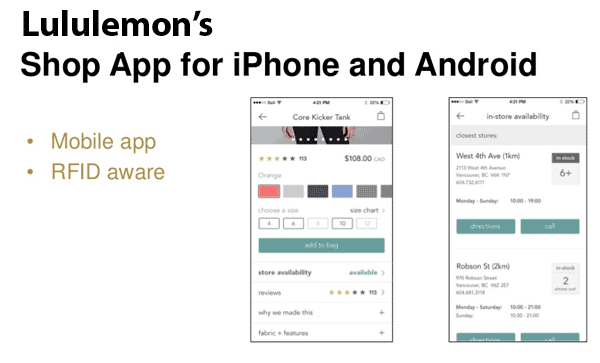Target Pushes Vendors to List Chemical Ingredients in Major Overhaul
Target is doubling down on its efforts to win over customers who prefer Green products.
The discount chain recently announced major new guidelines around chemicals in products, a change likely to push hundreds of suppliers to list ingredients in all sorts of household goods from beauty items to cleaning products.
In 2014, the retailer introduced a 17-product, multi-brand collection called "Made to Matter" that focuses on products with cleaner ingredients and expanded it in the following years. Sales in the line of what Target calls "good-for-you brands" rose 30% last year.
Supply Chain Digest Says... |
 |
| Slowly but mostly steadily, item-level RFID tagging, especially in soft goods, is gaining traction - if not quite yet critical mass. |
 |
|
|
Four years ago, Target committed to increase transparency about ingredients in the products it sells. And Target isn't alone in thinking along those lines: in July, Walmart pushed its suppliers to eliminate controversial chemicals in some 90,000 household items.
By 2020, Targets wants full ingredient disclosure on items including major categories like beauty, baby, personal care and cleaning goods on the way to including all products eventually. Some of Target's new guidelines include the removal of perfluorinated chemicals and flame retardants from textiles in the next five years, and eventually, listing ingredients in all products. A year and a half ago, Target expanded the list of chemicals it wanted suppliers to remove from products.
Target is hoping its clout leads other retailers to adopt similar practices.
Visit the Retail Vendor Performance Management home page to learn more
and subscribe to the monthly newsletter.
"It’s ambitious, but using our size, scale and expertise, we think we’ll be able to make significant progress." said Jennifer Silberman, Target's chief sustainability officer, in a blog post.
"RFID Don't Lie" Says Retailer Lululemon, Leveraging Vendor Tagging
Slowly but mostly steadily, item-level RFID tagging, especially in soft goods, is gaining traction - if not quite yet critical mass.
Macy's has said it will have all items in its stores tagged by the end of 2017. Target is rapidly moving ahead with its RFID tagging strategy and publicly touting its benefits. Kohl's is said to be working hard on RFID tests in its stores.
Another specialty retailer that has moved down the RFID path is Lululemon. Last month, Jonathan Aitken, IT Director Retail and RFID for the chain, wrote an interesting column on LinkedIn on his experience using the company's technology platform as a consumer.

Aitken wanted to buy a certain shirt that was soon to be gone from Lululemon shelves. Going to the closest store to his office, he found the shirt on the store floor, but not in the size he needed.
He is how Aitken tells the story from there.
"Instead of asking for help from one of our amazing educators (what we call store associates), and asking them to locate one for me in a nearby store or asking them to check if there was one in the back, I pulled out my iPhone and used the Lululemon app to scan the barcode on the hangtag," Aitkin said. "Our RFID ecosystem sprang into action."
That app uses the phone's camera to scan the bar code (not read the RFID tag) on the hangtag. That scan then pulls up the product detail page on Lululemon's ecommerce site.
It then uses the company's "back end integrations" to RFID to do a real-time inventory check across all stores, sorted by the ones closest to Aitken, based on his phone's location.
At the recent NRF show in New York City, Aitken said that before the RFID program, the company internally tested its buy on-line, pick up in store service in New York.
More than half the time, Lululemon was unable to fill the test orders because the store inventories were wrong. Now after RFID, it only has inventory issues on 1-4% of on-line orders, depending on the day.
"I could see that there was no size large in this store, but there was a large in our Robson Street flagship store two kilometers away downtown and they had two of them in stock!" Aitken wrote. "After dinner, I checked the inventory again and my phone showed that there were still two larges left and the update was less than five minutes ago."
Arriving at the store, he went to the rack confident that the item would be there.
"As our RFID Ops team is fond of saying 'RFID don't lie,'" Aitken wrote, adding that store inventories are now 98%+ accurate.
Goods are tagged by Lululemon vendors, and read as they are received at the store. Once a week, educators in every store cycle count the entire store front and back, a process that takes two of them less than two hours.
"This trues up the inventory to account for shrink and movement within the store," Aitken said.
Items are then read at the point of sale system when they are sold. All of the data about the inventory is pushed to the Cloud. The system also generates a task to move an item available in the backroom to the store floor if the last one is sold or goes missing.
"RFID puts the power of accurate inventory in the power of hands of the people that need it the most, the educators and our guests," Aitken concludes.
Your Comments/Feedback
|